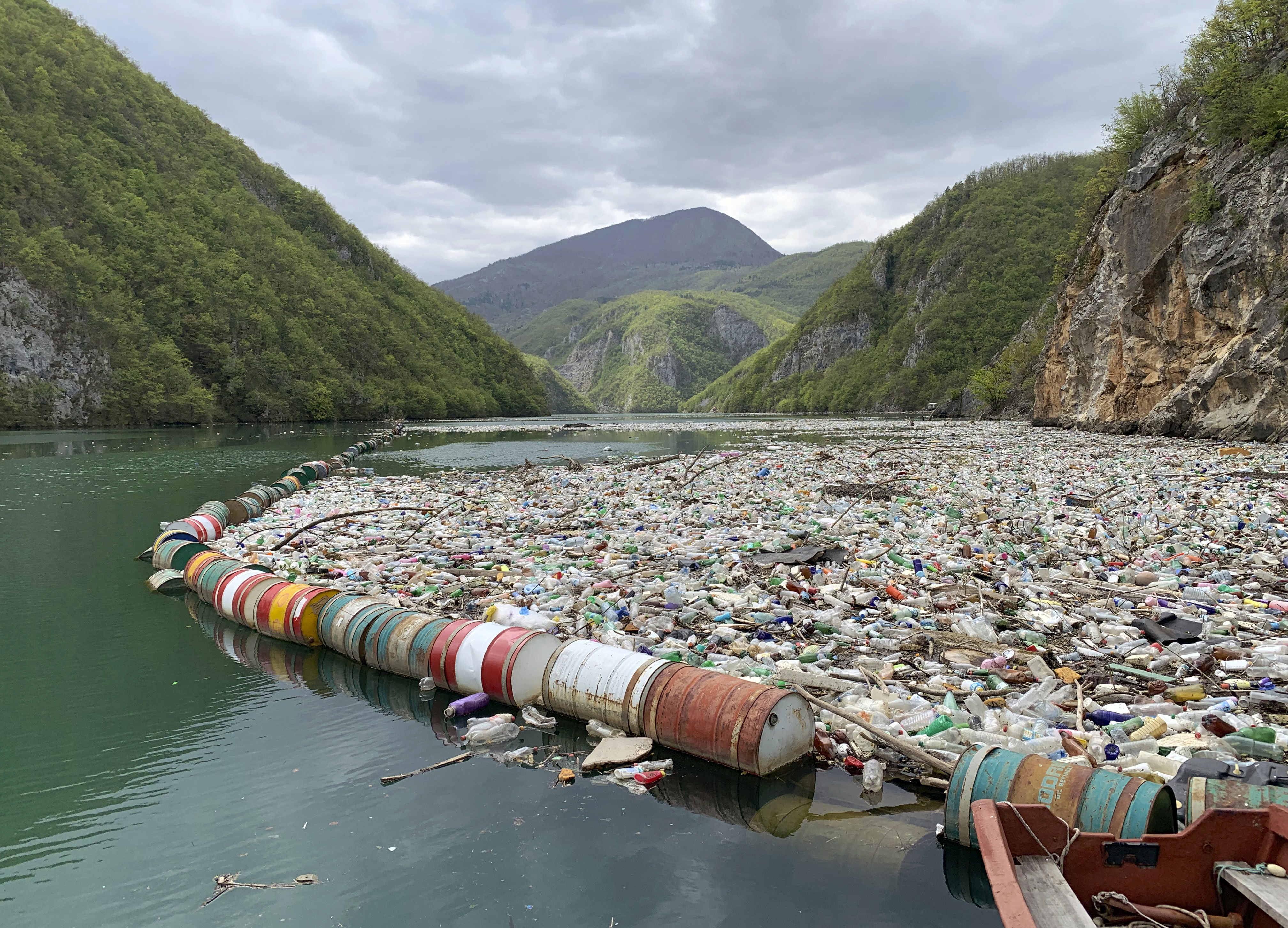
In this photo taken on Tuesday, April 23, 2019, plastic bottles and other garbage float in the river Drina near Visegrad, eastern Bosnia-Herzegovina. Plastic bottles, rusty barrels and even old washing machines are among tons of garbage clogging rivers in Bosnia that were once famous for their emerald color and crystal clear waters adored by rafters and adventurers as well as fishermen. (AP Photo/Eldar Emric)
VISEGRAD, Bosnia-Herzegovina — Plastic bottles, rusty barrels, and even old washing machines are among tons of garbage clogging rivers in Bosnia that were once famous for their emerald color and crystal clear waters adored by rafters and adventurers as well as fishermen.
Bosnia and other countries in the Western Balkans have done little to build an effective system of garbage disposal and environment protection despite formally seeking entry into the European Union and adopting some of the EU’s laws and regulations.
Neglected during the wars and crisis in the 1990s, the waste-management problem has grown over the years, reaching alarming proportions in a region where joblessness and poverty are widespread and where corruption routinely stalls implementation of reform laws. Rather than recycled, most garbage ends up at makeshift dumps and in rivers, contaminating both the ground and waters.
At the Drina river, which flows between Montenegro, Serbia, and Bosnia, tons of garbage is stuck near a key hydro power plant, forming huge islands that float on the surface. Locals said as much as 800,000 tons are pulled out of the Drina each year.
“This is a catastrophe, believe me – a catastrophe!” said Aleksandar Mladic, a resident of Visegrad, a town on the Drina in eastern Bosnia. “People throw everything in the river, not only plastic … there are corpses of dead animals, barrels, you can find anything in there.”
The environment ministers of Bosnia, Serbia and Montenegro met at the site in April, promising to work together to solve the problem but activists and residents have little faith it will happen anytime soon – effective waste management requires years of planning and huge investment.
Anes Podic, president of the Eco Action environmental group, said that between 100 and 200 tons of plastic garbage is dumped daily in Bosnia which he said is “enormous.” The official line, Podic said, is that citizens are reckless with their garbage.
“The truth is quite the opposite,” he insisted. “The government hasn’t been able to sort out one of its basic tasks and that is collection of garbage.”
By the banks of the Bosna river, whose source is near the capital Sarajevo and flows centrally through the country, dead fish could be seen washed up on the shore, which is heavily polluted by garbage hanging from tree branches and pooling at every little bend in the river.
Fisherman Hamdija Kandic recalled that there used to be catfish, carp, perch, and asp in the river, while now “the fish are dying. There are almost none left.”
“It’s the people’s fault,” the 60-year-old Kandic lamented. “We don’t take care of our rivers.” /kga